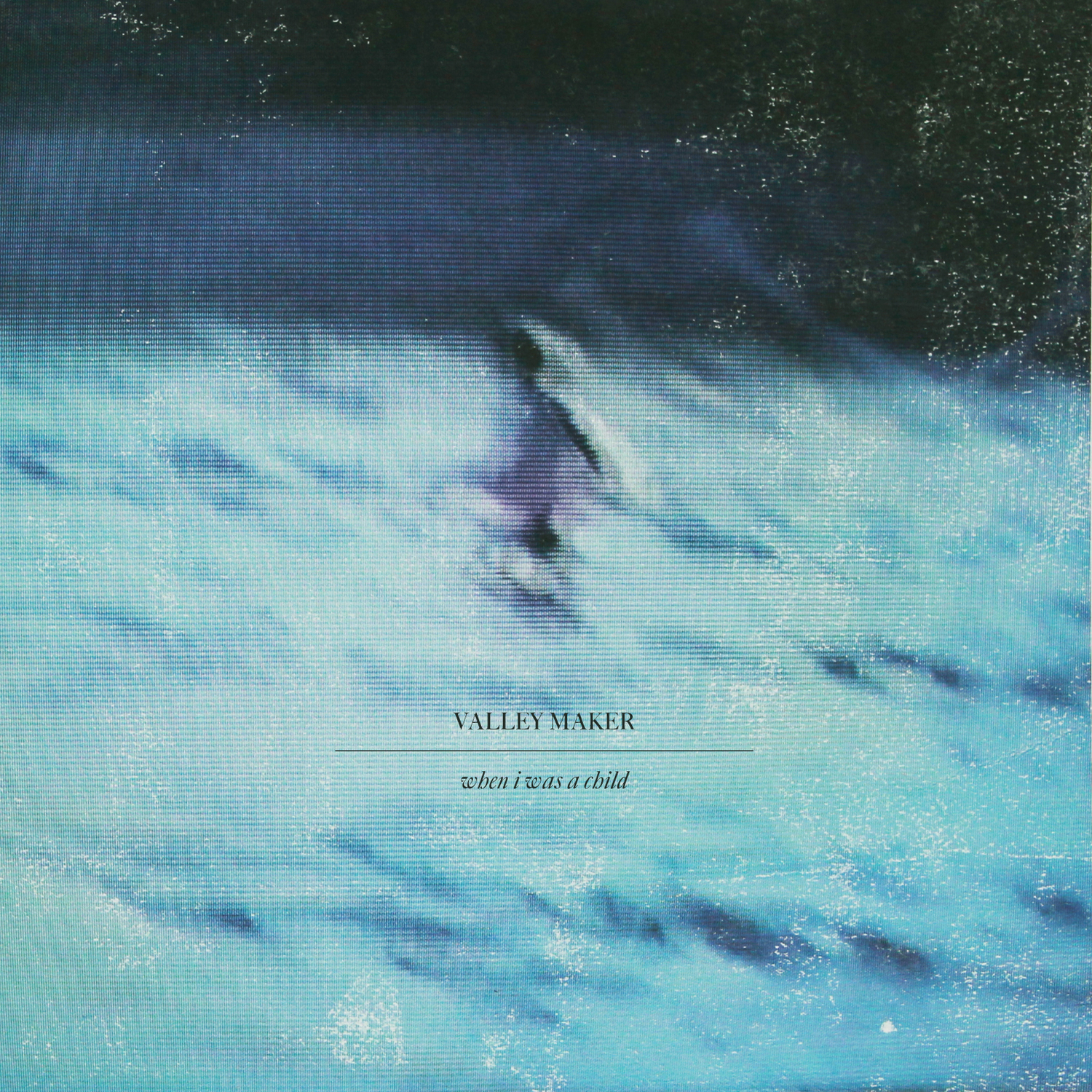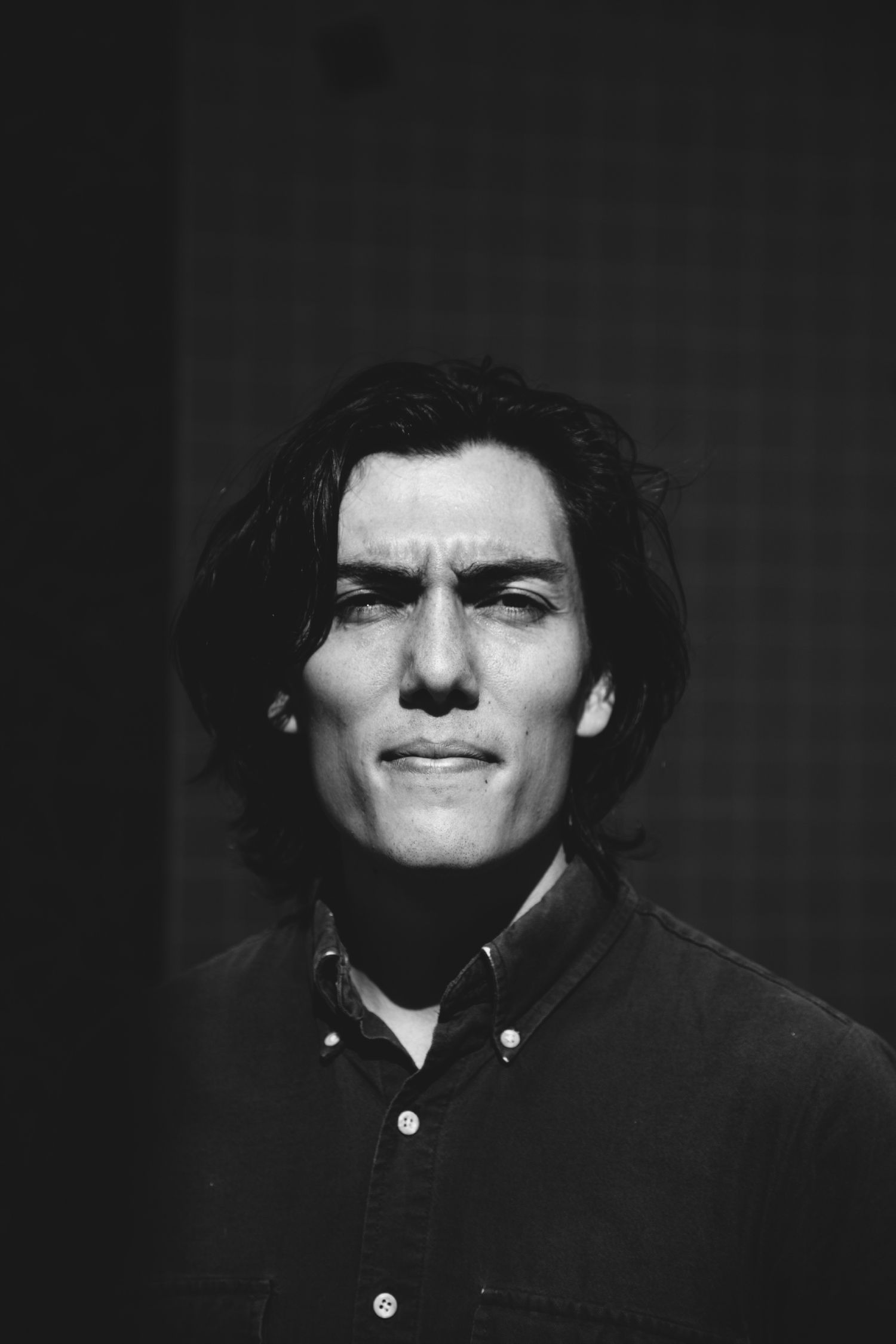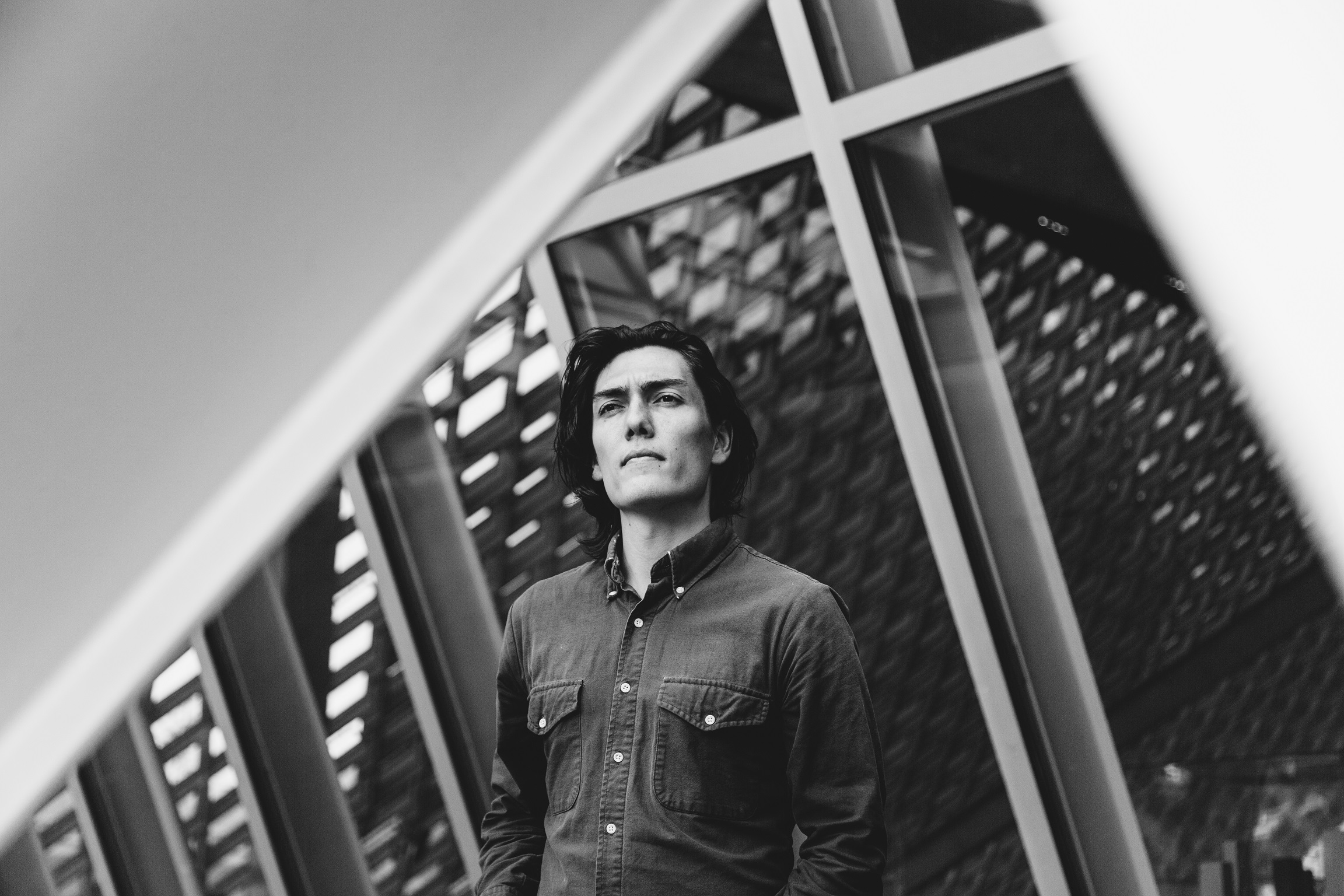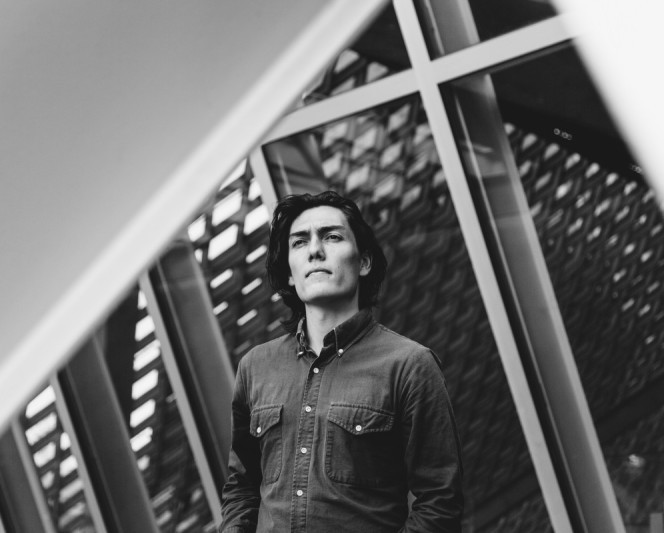We briefly mentioned When I Was A Child, the new album from Austin Crane’s Valley Maker, back in August, declaring some sneaking suspicions that the record would be a bit special. Well having heard it in its entirety, we can confirm that we were right to be excited. As the release date is still a few weeks away we’re holding off on the review for the time being, but we were lucky enough to ask Crane a few questions and delve into little deeper into the new album and Valley Maker as a whole.
Jon: Hi Austin, thanks for speaking with us! How are things with you? And how are preparations for the new album?
Austin: Thanks for getting in touch! I’m doing well. Seattle is a beautiful place in the summer so I’ve been trying to spend a lot of time outside in parks and in the mountains. Things are coming along nicely with preparations for the release. This is the first time I’ve released new music through a label, so it’s been fun to learn about everything it takes to release a record at this scale, and to be intentional about setting things up well. The band in Seattle has been playing together a lot recently. I’m excited to play some more shows and share the songs with people.
How would you describe the themes of When I Was A Child? What did you set out to achieve with it (if anything)? The press release says it “contemplate[s] life, love, and death, faith and doubt, time and space”. Would you agree with that?
The majority of these songs were written during a 3-year season of my life when I wasn’t really playing shows out at all. Most were written without the idea of any upcoming release in mind. During much of this time I was living in Kentucky and teaching, taking classes, and working on my master’s thesis for 12+ hours a day. Songwriting has always been a way for me to engage with the sort of themes mentioned in your question, but I think especially in that season of intense grad studies, these songs became a way for me to maintain a dialog with where I had been and where I was going. It was only during the process of compiling songs for recording that I noticed how they were cohesive, or at least complementary, thematically. Since these songs come from a time of life that saw a lot of change for me personally, I guess they are a testament to that change, growth, and movement.
The lyrics on the album are packed with doubt and questions, yet there seems to be an overarching clarity, as if you now have answers or else have accepted the answers aren’t coming. It got me thinking of a Checkov quote, something along the lines of “art can’t answer questions, but it can help us formulate them correctly”. Does creating your own music help focus serious personal stuff in ways you didn’t expect when starting out?
I like that conception of art by Checkov very much. I studied Russian language and literature for my undergrad, and I think I resonated with the overarching approach of authors like Dostoevsky, Gogol, and Tolstoy to the human condition – precisely because they honestly engaged how fragile our minds are, how limited our understanding can be, and how mysterious it is to be alive and in community with others, let alone a deity. Personally, I’ve always been drawn to songs that contain an element of mystery or open-endedness, songs that invite your mind to inhabit them with your own reality and questions. Songwriting, for me, can be an exercise in engaging difficult questions – whether those are questions of faith and doubt, or questions of what it means to move away from home, or even to share your life with someone else. The songs on When I Was A Child do at times wrestle with what can and can’t be known, and try to make peace with that. But the value of music and art for me is to creatively engage that process, not necessarily to arrive at or broadcast the conclusions.
Kind of related to the above question, but do you think of others when writing? Like, do you have a perceived audience, or do you do what works for you and hope that it resonates? And do you ever think about how your music can help other people with these big questions too?
While I don’t feel like I write songs with any particular audience in mind, and I would probably have written these exact songs even if they didn’t have an anticipated audience at all, I do think the audience is immensely important to the process of revision and performance. I’ve always had an impulse to share a song soon after it’s written with a bandmate or friend, or sometimes even to try it out at a show. I feel like having someone else present and gauging their reaction helps me figure out where I’m at with it personally. But perhaps most importantly, it gives me a sense of whether or not the song feels honest to play in front of others. If it feels honest when I share it, that’s the most meaningful thing for me.
I do hope others find meaning in the songs as well. It’s always really special to know that someone else has connected with a song I’ve written – but exactly how that happens is totally out of my control. Aside from overtly religious or political kinds of writing (such as hymns or protest songs), I’ve never liked the idea that songs are 100 percent “about” x, y, or z. People sometimes ask me what certain songs are about and I never know how to answer that question, it kind-of makes me uncomfortable. Obviously there is the static artifact of a recorded song, and of course songs are written in particular moments with unique intentions and thought processes – but I see songs as living entities that we engage with differently over time, whether we are playing them or listening to them. So the twelve songs on When I Was A Child came from specific moments and events in my life, but how they remain meaningful for me is always changing. That’s the only way I can keep playing them into 2016 and beyond and not feel like a fraud. Insofar as people listen to the lyrics, I hope they will find meaning in them over time in their own ways. If the songs are helpful with sorting through big existential questions, that’s great. Or sometimes just listening to music as a background to driving or walking through a park is nice too. Where do you get the inspiration for your music? Lots of coverage focuses on your upbringing and religion, but what else inspires you? Do you draw upon the work of other musicians? Or perhaps works of literature?
Where do you get the inspiration for your music? Lots of coverage focuses on your upbringing and religion, but what else inspires you? Do you draw upon the work of other musicians? Or perhaps works of literature?
Well my music is certainly inspired by where I’m from. I think that my upbringing in the US South in a fairly conservative religious community is one reason I’ve taken a lot from writings by the likes of Flannery O’Conner, William Faulkner, and Walker Percy, or from 19th and 20th century Russian literature. Generally speaking, one of the most fascinating things to me about music and literature is how people’s sense of place comes to bear on their work. It seems to me that people usually have fairly complicated or conflicting relationships with their homes and upbringings – it’s rarely simple. For me and for many friends that I grew up with, our coming into knowledge of the world and our place in it was infused with religious belief and practice, as interpreted by our families, communities, and churches. There was a lot of beauty and love in that upbringing, and I’m thankful for it, but there are also aspects of evangelicalism that I now find fairly troubling, personally and politically. Songwriting has been one way to work through that, but I wouldn’t say it’s the focus or key inspiration for my music any more than present realities of my life are.
In general, I spend a lot of time listening to records and going to shows in Seattle these days. When I hear or see something great, it always makes me want to be a better writer and performer. I’m inspired by songwriters like Will Oldham, Bill Callahan, Damien Jurado, Chan Marshall, Phil Elverum, and Dan Bejar, to name a few, who have made diverse and compelling songwriting records over the last two decades and are still going. Jason Molina’s songs have been a source of inspiration to me since I first heard Didn’t It Rain at age 17. I never met him personally, but his records are such a gift. It’s been hard to come to terms with his passing.
Do you feel more distant from some of the songs because they were written a few years ago? Or do you feel that they have finally been given the treatment they deserve?
This record has been over two years in the making, between sessions at Archer Avenue Studios with Kenny McWilliams in Columbia, South Carolina and at the Unknown with Trevor Spencer in Anacortes, Washington. Good friends contributed to the recordings in each location (Amy Godwin and Nathan Poole in both). So I feel proud of what the record represents as a whole – in a big way because it is representative of my communities of friends and musicians on both ends of the country. I’m glad that it will be coming out on vinyl. Thanks to everyone involved, I ultimately feel like it developed into an appropriate treatment of these songs that I’m excited to put into the world.
[soundcloud url=”https://api.soundcloud.com/tracks/209796794″ params=”color=ff5500&auto_play=false&hide_related=false&show_comments=true&show_user=true&show_reposts=false” width=”100%” height=”166″ iframe=”true” /]
Does this feel like the start of a new chapter, and can we expect more Valley Maker material in the future?
I think moving to Seattle in late-2013 was the start of a new chapter for the project. Upon moving here I started to play a lot more shows and I’ve gotten to know some amazing musicians and people in this city and wider region. Amy Godwin, who sang on both Valley Maker records, is living here now and I’m so honored to be able to play with her on a regular basis, along with Drew Fitchette (bass, guitar) and Wendelin Wohlgemuth (drums, percussion). I’m always writing new songs, and I’ll be excited for the time to come to start compiling material for the next record, but now seems like the proper season to inhabit the songs on When I Was A Child. Some of these have indeed been around for a while, but I don’t feel particularly distant from them. What the songs mean to me is always developing, and part of my vision for this project is to interpret the songs differently with the band in various live settings – that helps keep things fresh as well.
I saw that you recently uploaded your self-titled debut album to Bandcamp. Why did you decide to make it available after all this time? And do you still feel proud of those songs, which were written a part of your senior thesis project in 2010?
That record is a strange beast for me. I do feel proud of it as a collection of songs, and I see it as a foundational moment for this songwriting project. It was the first time Amy and I worked together; it was the first time I wrote mostly on the nylon guitar with alternate tunings; and it was the first time I really tried to give the songs I recorded space to breathe – to only bring to the recording what the songs needed. I had the first record online to download for free for about two years, and it was fascinating to me how people around the world found it and connected with it, with hardly any promotional efforts on my part. The internet has interconnected our lives in strange ways, but I guess that’s not always a bad thing.
As you wrote in your question, that record was written in 2010 for my undergraduate senior thesis project at the University of South Carolina, and it focused thematically on narratives from the Biblical Book of Genesis. So songwriting-wise, it was a momentary, structured focus on stories of beginnings that I had grown up being taught were foundationally true. For me it was both an academic and personal project to look at them in a new light by focusing on their humanity and mystery. But as years went past, and particularly as I moved to Seattle and actually started to play music regularly again, it felt increasingly strange for these to be the only songs people could access from the project. I didn’t want Valley Maker to be pigeonholed as a sort-of “Bible songs” conceptual project, because for me it had already evolved far beyond the thesis record into a general songwriting project. All that being said, I am still happy for people to be able to access that record. It just seemed appropriate to bring it back in concert with plans for new material to be released. That way 22 and 27 year-old me are both represented. Finally could you name 4 or 5 bands/artists that you’ve been enjoying lately? They can be brand new or from a hundred years ago, whatever you like.
Finally could you name 4 or 5 bands/artists that you’ve been enjoying lately? They can be brand new or from a hundred years ago, whatever you like.
I saw Tinariwen play in Seattle a few weeks ago and it was mind-blowingly good. I’ve been trying to learn as much as I can about guitar-based music from Africa over the last few years, and it was really incredible to be in the presence of that style of playing. I’m really moved right now by the work of Sidi Toure and Boubacar Traore, who are both guitarists and singers from Mali. I’ve been a big fan since Michigan, but Sufjan Steven’s latest record was nearly the only thing I listened to for several months – just incredible songwriting. My most listened to record of the last two years is probably Joanna Newsom’s Ys; it’s a gift that keeps giving. I’ve also been really enjoying Chad Vangaalen’s last two records. Finally, my friend Chris Staples in Seattle is a wonderful songwriter; we’ve played some fun shows together recently and I love his latest record. Sorry, that’s more than five.
When I Was A Child will be released on the 25th September. You can (and definitely should!) pre-order it now via Brick Lane Records. We’ll get a full review up nearer to release. You can read our review here.

